Feeding the mind and the body
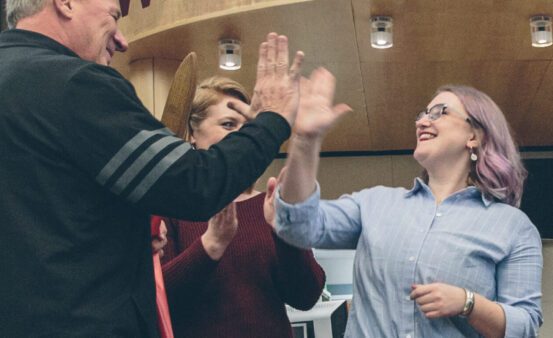
University students open a campus food pantry to debunk the myth that being broke and hungry is a normal rite of passage while attending school. The University of Montana (UM) joined a growing national movement looking to combat food insecurity among its students by opening the UM Food Pantry, with the support of Clearwater, Blackfoot, Missoula Chamber of Commerce, Cedar Mountain Software, and the University Center.
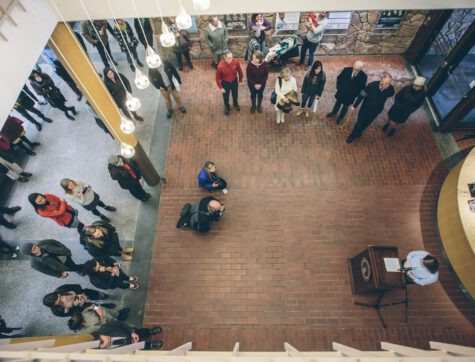
From Idea to Reality
Though there has been a great deal of interest in creating a food pantry program for several years, the project gained momentum in July of 2018 with the formation of the University of Montana Committee on Food and Housing Insecurity. Working in partnership with the Missoula Food Bank and the Montana Food Bank Network, pantry organizers worked to collect data, gather donations, find community sponsors, and acquire dedicated space to house the pantry program.
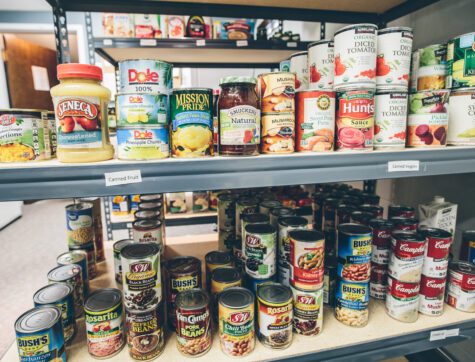
#RealCollege
To collect data specific to the University of Montana, organizers of the campus pantry participated in the #RealCollege Student Basic Needs Survey in the fall of 2018. #RealCollege is a nationwide survey designed to reveal the daily experiences of college students and how they meet their basic needs.
Identifying Campus Need
The United States Department of Agriculture (USDA) defines food insecurity as a lack of consistent access to enough food for an active, healthy life. Those affected by food insecurity experience a reduced quality, variety, and desirability of food, disruption of eating patterns, and reduced food intake because of a lack of money or other resources for food.
For many college students, this means not knowing what one’s next meal will be, where it will come from, or how much food one will have the next day, week, or month. The stress of food insecurity not only disrupts a student’s pattern of learning, but it can be an underlying cause for other struggles such as increased anxiety, deficits in social confidence, and overall physical and mental well-being. Pantry supervisors say many students put most of their money toward paying the rising costs of attending college and rent, which means they often don’t have enough left over to buy food.
Throughout the United States, universities are creating services to support students facing food insecurity. These services are typically in the form of campus food pantries like the one at UM. At the UM Food Pantry, students can pick up free food, hygiene products, and school supplies at a more convenient location.
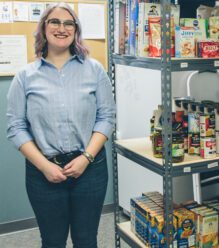
UM Pantry Student Coordinator
Kat Cowley
Stands in the new UM Food Pantry located in the University Center.
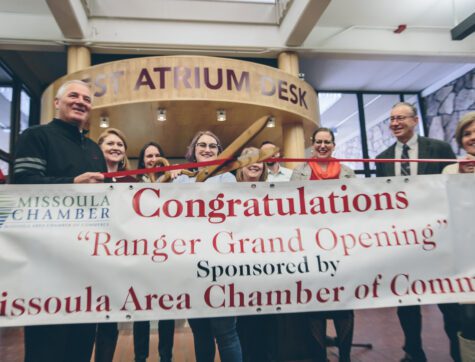
You Can Help
The UM Food Pantry accepts nonperishable food donations, as well as toiletries, toilet paper, feminine hygiene products, and household cleaning supplies. Monetary donations can be submitted anytime online and are used to help fund pantry operations and to purchase undersupplied food and products.
To make a donation or get involved, call the UM Food Pantry at 406-243-5125 or email umpantry@umontana.edu.
This story was originally published on February 21, 2019.


